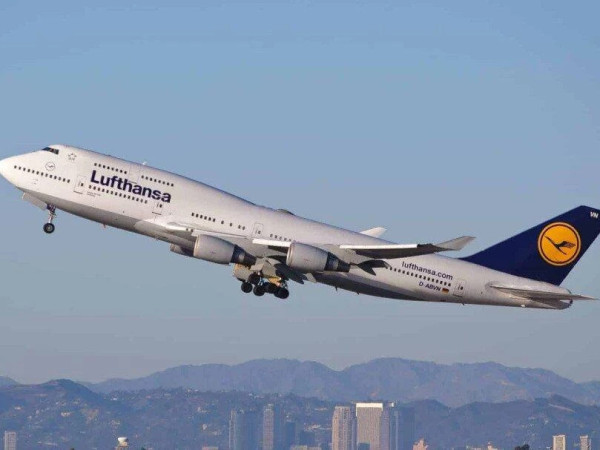“Tourism sector overcame the crisis, and it is ready to recover” – this is what we heard from the Finance Minister on his Minister’s Hour before the Parliament. Lasha Khutsishvili was referring to the statistics.
Total international arrivals, including tourists and same-day arrivals to Georgia, increased by 188.1% y/y to 104.8k persons in May 2021, according to GNTA. This growth was solely driven by 264.1% y/y growth in tourist arrivals from last year’s low base, as same-day arrivals were down by 16.3% y/y.
Overall, in 5M21 total international arrivals stood at 317.5k (-73.3% y/y), of which tourist arrivals reached 288.9k (-64.7% y/y) persons. Meanwhile, Georgia’s leading investment bank - Galt and Taggart, estimates tourism revenues at US$ 171.6mn (-61.5% y/y) in 5M21.
As land borders opened from June 1, 2021, it is logical to expect international visitor growth to accelerate further. However, it should be considered that the epidemiological risks are still lingering in the air, raising fears for the consequent waves of COVID-19, which usually lead to stricter lockdowns, and last week we already analyzed why that should not be an option for Georgia - so the main question today is: With still quite a low pace of vaccination, should we leave land borders open or not?
This Editor’s Note has no direct answer, and there is a reason for that: Opening borders is a dilemma today only because we are far behind the vaccination pace as set by NCDC and the government. If vaccine rollout accelerates in Georgia, the country will have its own immunity against the virus. That’s the one side.
And here’s another.
“Georgia is not yet on the map as a safe destination – Kakha Samkhurashvili from Galt and Taggart told The Checkpoints – We are the destination for the countries unvaccinated like us.”
And that’s precisely true: Mass-vaccination hopes for the second quarter are already behind, and the sense we get from the public speeches is that the process will only kick off from the third quarter or even fourth.
Today, the Government’s Inter-Agency Council introduced a new ‘operational plan’ for the vaccination program, which includes increasing the number of vaccination brigades and involving more medical institutions in the vaccination process, among others. The Council also discussed the introduction of the massive vaccination centers which will be deployed in public spaces.
Before that, betting on high-spender European or US tourists doesn’t seem wise since travel hesitancy due to epidemiological risks is still there globally and still high. We also hear official calls from these countries to their citizens to hold back from traveling to Georgia even with two jabs in place.
If we look at the top 15 countries that travel to Georgia, only Israel could be considered a safe source market, meaning a so-called green market for attracting tourists. Here more than 61% of the population is fully vaccinated. As of other countries that also travel to Georgia by land: Global statistics show that as of today in Armenia and in Ukraine, less than 1% of the population is fully vaccinated; in Turkey, 16%; in Azerbaijan, 9.5% and in Russia 9.8%.
According to the Georgian health authorities, a total of 212,163 persons have received at least a single dose of the COVID-19 vaccine since Georgia initiated vaccine rollout on March 15. In the meantime, 69,197 persons have been fully vaccinated – that’s less than 2% of the population.
We clearly see that the countries around us are roughly in the same or even worst-case scenario when it comes to mass vaccination. Russia, for example, is totally dependent on Sputnik-V, which to this day has no emergency use authorization from either WHO or EMA, which means that we know basically very little about the effectiveness of this vaccine.
Meanwhile, today’s new decision of the Government of Georgia’s Inter-Agency Council is that fully vaccinated persons will be exempt from the obligatory regular COVID-testing.
So, the risks are clearly there.
On the other hand, the test positivity rate for today for Georgia stands at 3.67%, the 14-day rate is at 2.6%, while the rate for the past week stands at 2.33% - far below the WHO threshold for strict lockdowns. Looking at the current epidemiological picture, it seems too cautious indeed to keep the land borders closed.
However, again, the industry fears that without mass-vaccination efforts in place, positivity rate numbers might spike, provoking a stricter lockdown.
“We will have a COVID-tourism – Saba Kiknadze, Founder of Caucasus Travel, told Analytics with Elene Kvanchilashvili – where people in effectively dealing with COVID will share their visits and spread the virus even more.”
This is the industry that has been fully locked down during the winter season and might not withstand another blow from the failing summer season.
Even with borders opened, Galt and Taggart predicts that Georgia’s tourism sector will recover up to 35% of the 2019 level in 2021 – not more. Fortunately, outlooks for Georgia’s tourism are much more optimistic for 2022 and 2023.
So, to reach at least gradual recovery in the sector, which is the backbone of Georgia’s economy, easing restrictions and opening borders is vital.
And yes, this dilemma is only a dilemma when we lack vaccines and those who are ready to show off their shoulders to the most needed jab today.















